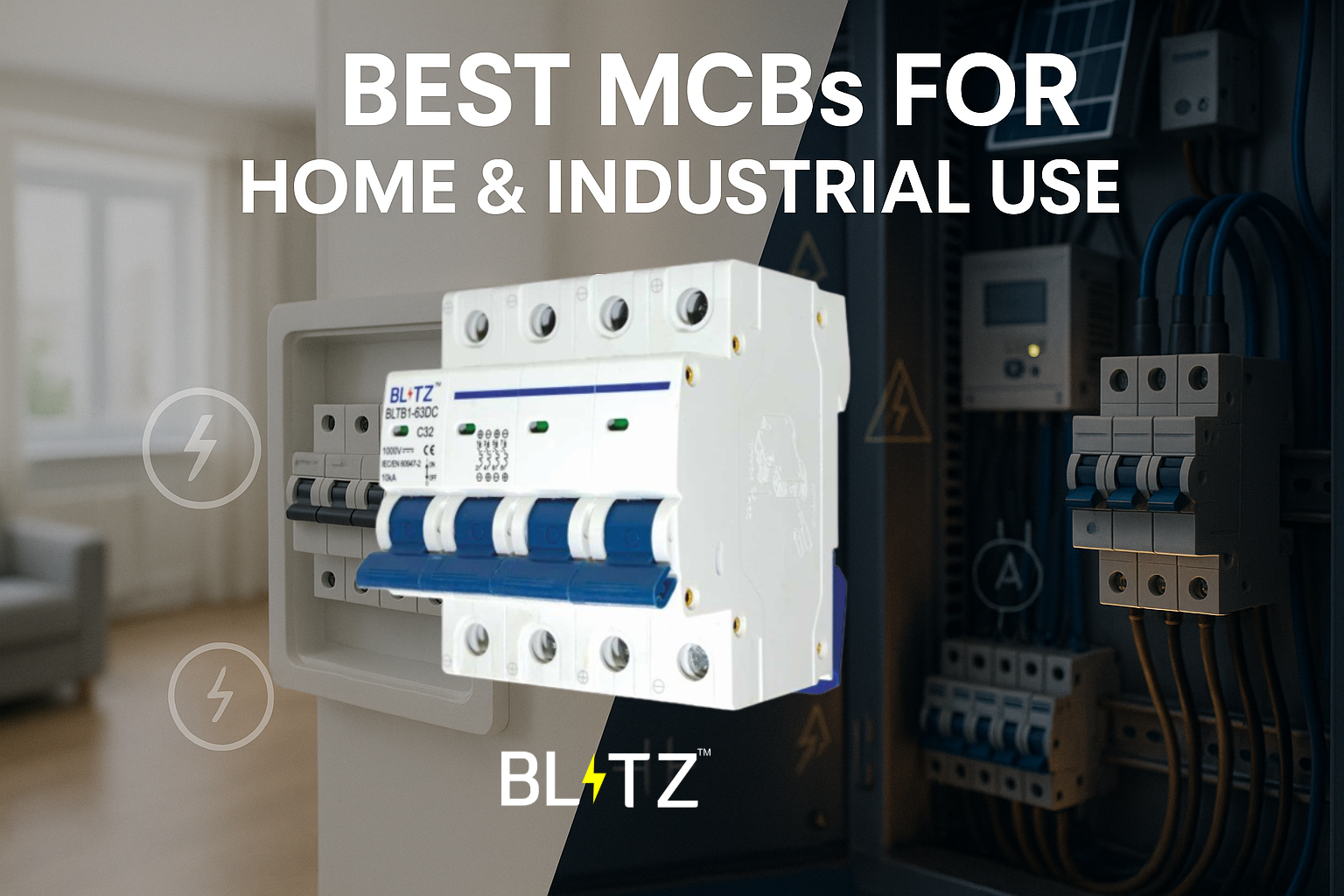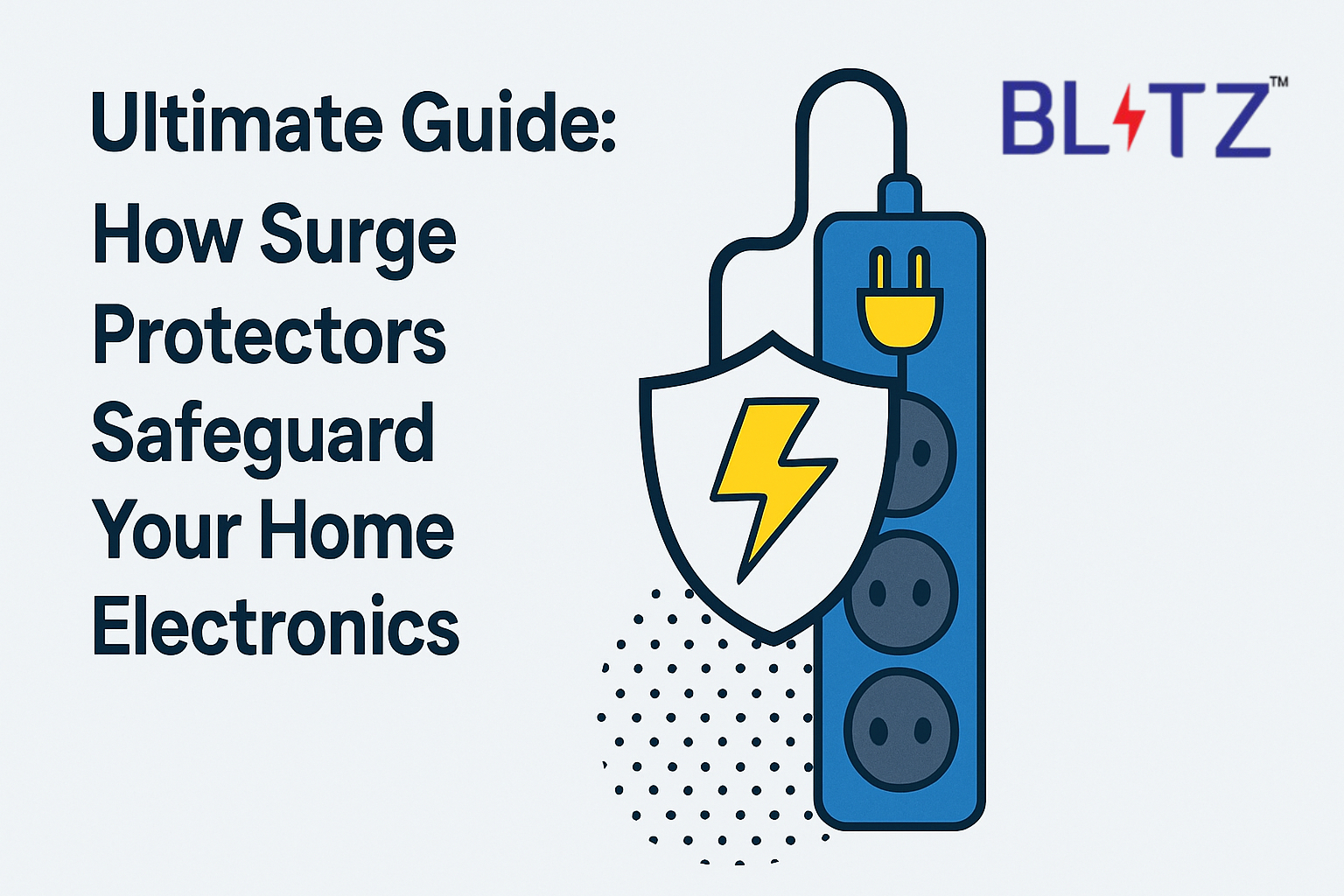
Best Fuse for Indian Homes
Choosing the right fuse ensures safety from electrical overloads and protects your home appliances. A reliable fuse prevents short circuits and enhances overall household safety.
Best Fuse for Indian Homes
Electricity is a basic utility found in every modern Indian home. From lighting and fans to sensitive electronics such as, laptops, Smart TVs, and home automation if the electrical system is not stable and safe, then, safety is a concern. The fuse is a small but mighty device in the interest of safety.
In light of increased power consumption, solar uptake and smart homes entering the fray in India, in some ways the need to select the right fuse (fuses, in some cases) for homes in India in 2025 is greater than before. This guide will detail the positions of the fuses, the new technology trends at the time, as well as the best supply options relevant to Indian homes.
Why Are Fuses Important in Indian Homes?
A fuse is an electrical protection device that protects electric circuits from overcurrent, shorts and damage to equipment. A fuse consists of a fine wire or strip that melts when excessive current passes through it, then ruptures the circuit and prevents hazards, such as:
- Electrical fires
- Damage to appliances
- Shock risks
- System failures
MCBs (Miniature Circuit Breakers) and RCCDs (Residual Current Circuit Devices or Breakers) have proven reliable these days, but fuses still exist in use due to its simplicity, affordability and reliability. Even PV solar systems and surge protection products have fuse type protection due to their reliability and safety.
Types of Fuses Commonly Used in Indian Homes
- Rewireable Fuses (Kit-Kat Fuses)
Traditional ceramic-bodied fuse.
Cheap and easy to use but less safe compared to modern devices.
Still found in older Indian homes. - Cartridge Fuses
Cylindrical body with metallic contacts at both ends.
Reliable, compact, and widely used for appliances.
Available in glass or ceramic variants. - PV Solar Fuses
Custom made to suit solar rooftop.
Safe ultra high DC voltages (1000V - 1500V).
Examples: Blitz PV Solar Fuse Terminals & Fuse Links. - HRC (High Rupturing Capacity) Fuses
Can safely interrupt very high fault currents.
A must essential in residences where there are high power appliances such as ACs, geysers, and induction cooktops. - MCBs & Fuse Holders
Not exactly fuses, but modern protective devices often used in combination with fuses.
Provide quick reset and long-term durability.
Best Fuse Options for Indian Homes in 2025
- Blitz PV Solar Fuse Links
Designed for solar homes, which are rapidly growing in India.
Rated for 1000V and 1500V DC.
Breaking capacity of 50kA, ensuring strong protection.
Compact, DIN-rail mountable, and compliant with IEC 60269-6.
Perfect for homeowners adopting rooftop solar in 2025. - Cartridge-Type HRC Fuses
Best for high-load appliances in Indian homes.
Protects against overload and short circuits effectively.
Safe, compact, and compatible with modern fuse holders. - Blitz Fuse Holders with Fuse Links
Modular design for easy installation in home distribution boards.
Flame-retardant enclosures with IP20 protection rating.
Designed for long-term reliability. - MCB + Fuse Combination
Though not a traditional fuse, MCBs are the preferred standard in Indian homes in 2025.
For enhanced safety, they are often used alongside cartridge fuses for dual protection.
Ideal for homes with expensive electronics.
Key Features to Look for in the Best Fuse for Indian Homes
- Voltage Rating: 230V AC single-phase or 415V AC three-phase (match your supply).
- Current Rating: Rated slightly above the load of the appliance.
- Breaking Capacity: Higher breaking capacity (e.g. 50kA) ensures safer performance.
- Material & Quality: Flame-retardant housing is best safety practice.
- Ease of Replacement: Modular fuses or holders make replacement easy.
- Compliance: Tested to IEC and IS standards for reliability.
Why Blitz Fuses Stand Out in 2025
It is clear that Blitz Electrical offers globally certified, India-engineered protection solutions. Here’s why Blitz fuses and holders are excellent for Indian homes:
- Global Standards: Certified under IEC and EN standards.
- Durability: Flame-retardant thermoplastic enclosures.
- Wide Range: From PV solar fuses to cartridge fuses and MCBs.
- Safety Indicators: Many Blitz products feature green/red status windows for easy monitoring.
- Made in India: Proudly engineered in India, trusted worldwide.
Installation & Maintenance Tips for Fuses
- Always choose the correct rating – never oversize a fuse.
- Install fuses in fuse holders for safety and convenience.
- If using solar fuses, ensure proper DC polarity connection.
- If fuses blow, then replace them immediately - do not bypass.
- Integrate with RCCBs and SPDs to get full protection in 2025.
Fuse Technology Trends (2025 & beyond)
As Indian homes become smarter so too does fuse technology:
- Smart fuses - Digital monitoring with IoT connectivity for immediate alerts.
- Hybrid Protection Devices - Combination of fuses, MCBs, and SPDs in one unit.
- Higher Solar Compatibility - With India’s renewable energy push, DC-rated fuses will dominate.
- Compact, Modular Designs - Easier integration with home automation systems.
FAQs on Best Fuse for Indian Homes 2025
AC/Geyser: 16A–25A fuses
Solar DC systems: 20A–50A PV fuses
DC fuses are used in solar and battery systems where direct current flows.
Conclusion
As we approach 2025, the best fuse for Indians is not only based on the cost, but also other factors - like safety, efficiency and compatibility with current energy needs. The traditional re-wireable fuse has all but disappeared from consumption while cartridge fuses, solar PV fuses, and MCB-fuse combinations has grown significantly.
When it comes to Indian households utilizing solar and smart appliances - Blitz PV Solar Fuse Links and Fuse Holders offer the best reliability. Selecting the correct fuse is not just about protecting your apparatus - it is about protecting the safety of your home.



